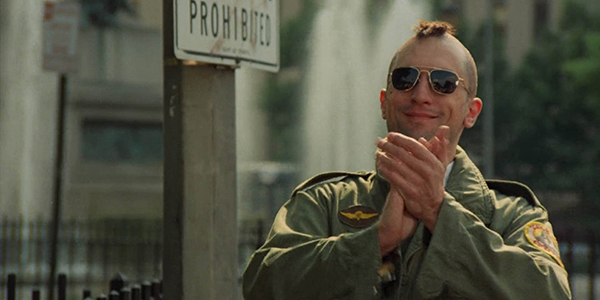Taxi Driver
- 24 Apr 2022
- The movie has inspired an attempted assassination of a president and countless "You talkin' to me?" impressions. Its protagonist straddles the thin lines separating villainy and heroism. Victimhood might be a factor, too. This post contains spoilers.
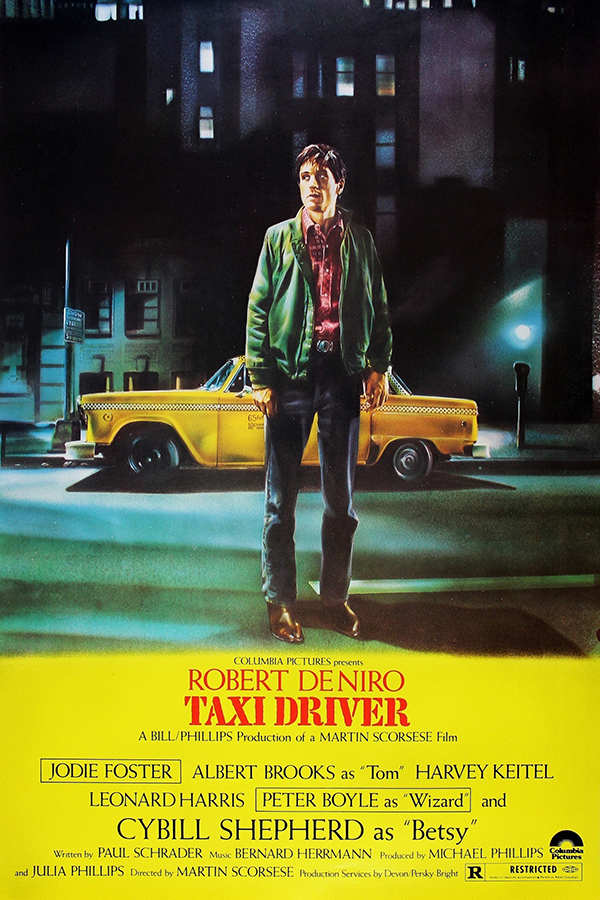
Taxi Driver is a movie that everybody needs to see, not because they’re sure to enjoy it, but because it’s a classic. It’s both representative of an era and applicable to many others. Calling it ‘an in-depth character study’ gives it too much credit, though. It’s a story that follows a disconnected man who could be admired in some ways and condemned, as well as feared, in other ways.
I haven’t seen The Joker, but I know that movie draws inspiration from this one. It really could be a grounded origin-story for a comic-book character who can make others feel sympathetic or scared, or both. Besides the Clown Prince of Gotham, the man at the end of this story could become an alternative-universe Batman or Rorschach. Calling Travis (Robert De Niro) a villain isn’t quite right, and neither is calling him an anti-hero.
“Toxic masculinity” is a phrase that people toss around these days, but it does apply to this movie. His pursuit of Betsy (Cybill Shepherd) and crusade for Iris (Jodie Foster) are admirable for any man. On one hand, he’s respectful, forthright, and above all, confident. On the other hand, he’s pitifully self-centered. His inability to think beyond his headspace leads him to offend Betsy and (although he saves her) endanger Iris.
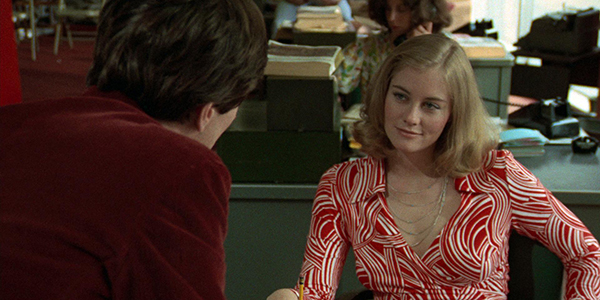
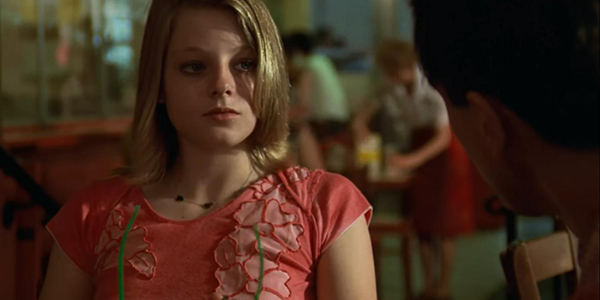
Travis is the type of movie character who acts like a movie character. The problem is that the movie in his head is the most toxically masculine of all: it can only end with premeditated bloodshed. Travis doesn’t intend to kill innocent people, but his target poses no direct threat to him or anyone else. Senator Palatine is vulnerable, but as a viable candidate for the presidency, the man has Secret Service protection. So, Travis prepares for battle.
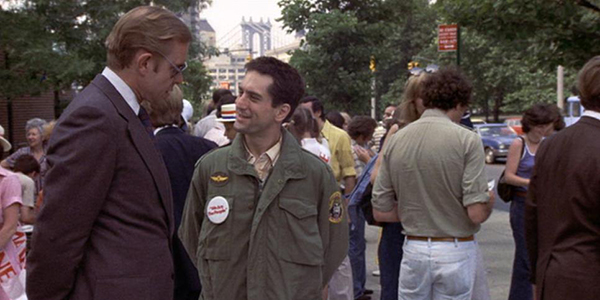
Even while conditioning his body and modifying his weapons, I wonder if Travis realizes that his underlying motivation is competitiveness. It would’ve been accepted and encouraged several years earlier when he’d been a Marine in Vietnam. He might’ve become a national hero had he managed to assassinate an important figure back then. Instead, the train-wreck of his post-military life veers off-course and leads him to more local renown.
Martin Scorsese, who makes an unforgettable appearance, probably hadn’t intended this movie to be about PTSD. The phenomenon would’ve been present in the mid-70s, but it wouldn’t have been in the public consciousness. It’s another instance of his filmography that depicts a frustrated man who lacks self-awareness and self-restraint. Unlike Raging Bull, which is explosive at different times, Taxi Driver is a slow burn.
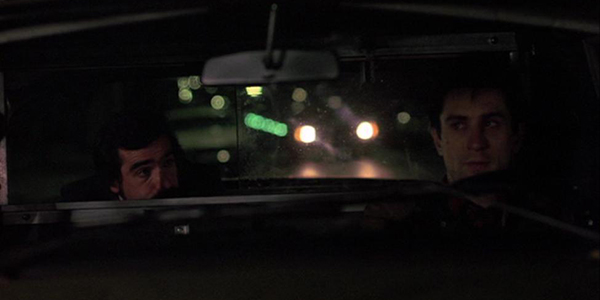
It’s the type of movie that I can’t watch in one sitting, but I appreciate its elements. Amazingly, Bernard Hermann had completed the score one day before his death. The theme is a perfect encapsulation of the movie. It alternates between foreboding and forlorn moods; the latter is more prominent throughout the movie, but the former is still impactful. I’ve been playing “A Reluctant Hero / Betsy / End Credits” for weeks.
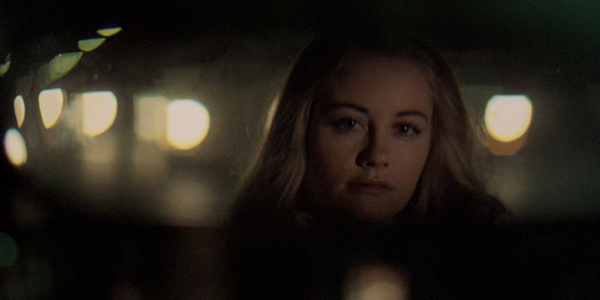
I’d known of the assassination plot before watching this movie, but I hadn’t known the outcome. Travis isn’t the expected, archetypical psychopath or sociopath. He converses with and, importantly, empathizes with (some) people fairly well. Despite his planned kill-streak, he could be an acceptable member of society. As mentioned, Travis could easily be admired, condemned, and/or feared, but someone like him should certainly be helped.
